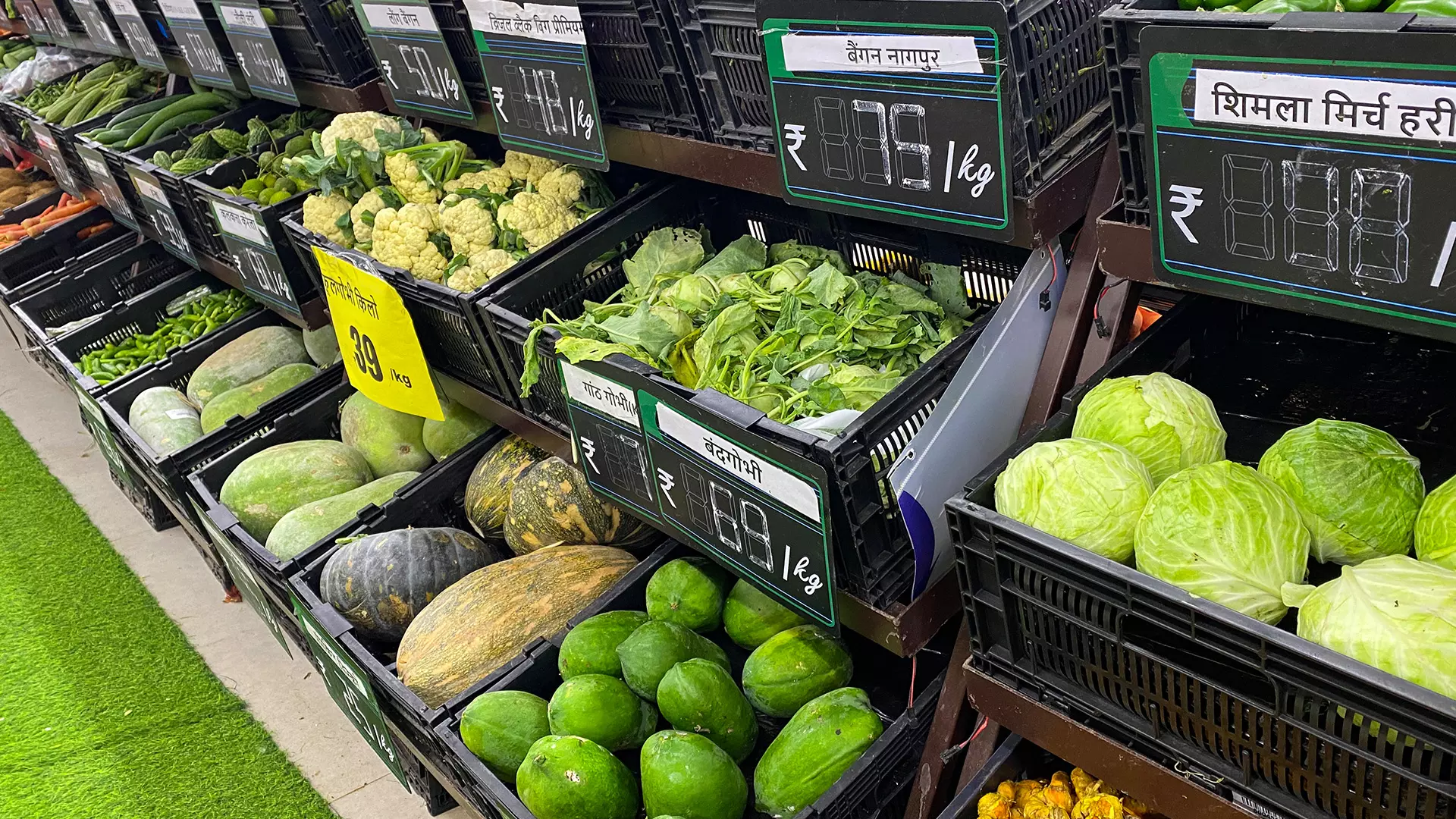
Avoid eating spinach sold in Bengaluru markets: Study probing heavy metals in vegetables
Researchers from Environmental Management & Policy Research Institute have flagged the presence of heavy metals beyond permissible limits in vegetables, including spinach in Bengaluru markets

Researchers working on a study on heavy metal concentrations in vegetables sold in Bengaluru have suggested that people should avoid eating spinach purchased from vegetable markets in the city.
The study conducted by the Karnataka government run Environmental Management & Policy Research Institute (EMPRI) and published in November last year, found significant amounts of heavy metals in vegetables and in some cases beyond the permissible limits prescribed by Food and Agriculture Organisation/World Health Organisation.
Having found in their study that "edible vegetables are hyperaccumulators of heavy metals"across vegetable markets in Karnataka's capital, the researchers recommended that "it is advised to avoid eating spinach bought from the vegetable markets of the Bangalore". And advises people to grow their greens organically at home in rooftop gardens, window gardens and balcony gardens. This is largely because leafy vegetables absorb more heavy metals compared to other vegetables, and are known as hyper-accumulators.
The higher uptake of heavy metals in leafy vegetables is due to higher transpiration rate of plant to maintain the growth and moisture content of plant, says the study.
Use of waste water in growing vegetables
The study, helmed by research scientist N Hema, found that the use of waste water to grow vegetables by farmers was leading to heavy concentrations of metals in vegetables. The purpose of the study was to estimate the concentration of heavy metals in vegetables obtained from retail hypermarkets, local markets, organic stores and HOPCOMS.
Samples of vegetables were collected randomly in duplicates from five different retail Markets from BTM Layout, Kanakapura Road, Bannerghatta Road, Jayanagar; from local markets in Malleshwaram, Yeshwantpur, Banashankari, Gandhi Bazar and KR Market), and from organic stores and HOPCOMS.
A total of ten vegetables namely brinjal, tomato, capsicum, bean, carrot, green chilly, onion, potato, spinach and coriander were collected in pairs from each of these markets and analysed for heavy metals like cadmium, chromium, copper. Iron, manganese, nickel, lead and Zinc. A total of 400 vegetable samples were collected and analysed for heavy metal concentration.
Samples from retail markets
The study exhaustively details how much heavy metal concentration was found in the vegetables in each retail market. To give an example, in one retail market in BTM Layout, the concentration of nickel and cadmium were found to be beyond permissible limit in all the vegetables. While in Kanakapura road, the highest iron concentration was found to be in coriander (514.05 mg/kg), though the permissible limit is 425.5 mg/kg. The highest concentration of chromium was found in brinjal at 270.65 mg/kg (permissible limit is 2.30 mg). Spinach was recorded to have a high concentration of manganese (248.33 mg/kg).
The permissible limits of heavy metals (mg/kg) in vegetables as prescribed by FAO/WHO are: cadmium - 0.2, Lead - 0.3, nickel - 67.9, Iron - 425.5, copper - 73.3, zinc - 99.4, chromium - 2.30, manganese - 500.
Local markets
In the samples collected from one local market, Malleshwaram, as a sample from the study, the researchers found the concentration of lead and cadmium were above permissible limit with highest concentration in green chillies (40.90 mg/kg) and beans (11.93 mg/kg). The highest concentration of iron in spinach was 256.20 mg/kg, whereas highest concentration of chromium was found in carrot (207.15 mg/kg). The permissible limit of chromium being 2.30 mg/kg.
Organic stores
Organic stores meant to be free from metals or pesticides did not fare beter. For example, in an organic shop in Vasanthnagar, according to the study, beans obtained from one organic store had iron concentration as high as 810.20 mg/kg, as compared to 425.5 prescribed as permissible limits by FAO/WHO. Similarly, the iron concentration in coriander was 945.70 mg/kg and 554.58 mg/kg in spinach. The concentration of zinc was highest in beans (145.08 mg/kg), permissible limit being 99.4 mg/kg.
HOPCOMS
Among the HOPCOMS, onion was found to have 592.18 mg/kg of Iron in samples obtained from Yelahanka, said the study. The highest concentration of iron in spinach was 370.23 mg/kg, whereas highest concentration of chromium was found in potato (306.80 mg/kg). 448.45 mg/kg of iron was found in spinach obtained from Shanthinagar.
The effects of heavy metal on the body
The study also describes the poisonous effects of these heavy metals on our bodies. For example, the study says that chronic Cd exposure can lead to acute liver and lung toxicity, induce renal toxicity and impair immune system function. While Fe causes anemia, shortness of breath, overweight in children and adolescents. High doses of Fe can decrease the absorption of zince and cause liver cancer and heart disease, says the study.
Bengaluru consumes lot more vegetables
Earlier, Bengaluru city used to get its vegetables from K R Puram and other villages surrounding the city, says the study. Now the city has grown from 250 sq km to 850 sq km in area and the population has become more than a crore, and the demand for vegetables too has shot up multiple times. "Bengaluru is the city that consumes the most vegetables in Karnataka, as almost a fifth of the state’s population resides here," says the study, adding that the city on a daily basis gets around 2,000 tonnes of vegetables.
In its recommendations, the researchers have suggested that farmers should not resort to unethical farming practices such as irrigating the crops with drainage and effluent waters.
Farmers of the suburban areas should not be allowed by law to grow greens and vegetables utilising the drainage and effluent waters. A continuous monitoring is recommended to rule out toxic metal contamination in these greens and vegetables.

